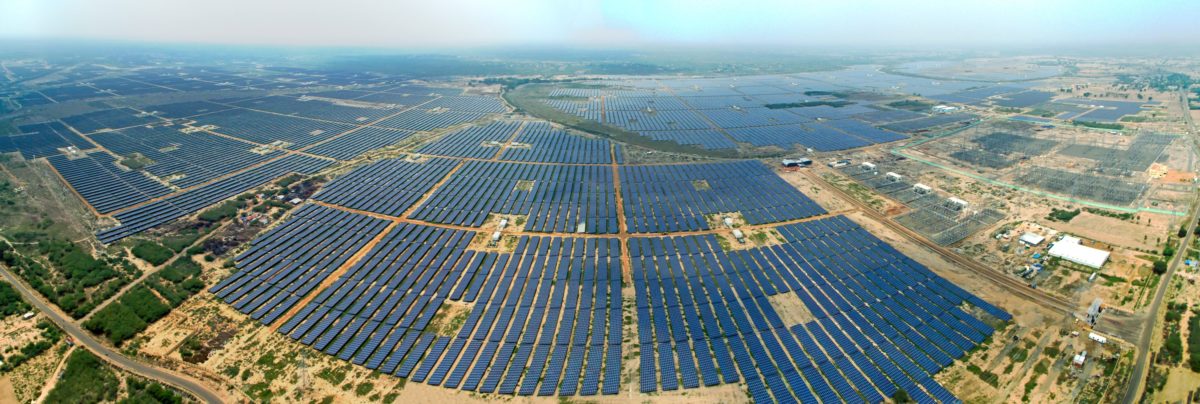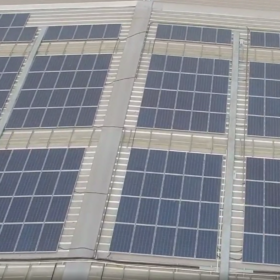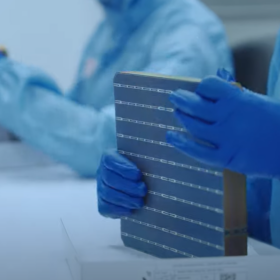The receivables period for leading renewable energy (RE) companies is set to reduce a fifth from 180 days a year ago to 140 days as of March 2023, a level last visible pre-covid. Two-thirds of the improvement will be because of increased offtake by central counterparties. The rest will be due to state-owned electricity distribution companies (discoms) implementing the Late Payment Surcharge (LPS) scheme, according to a new report by CRISIL.
The incremental cash flow will allow RE companies to build capacity for growth and reduce leverage, added the report.
CRISIL estimates are based on an assessment of ten leading RE companies in its Ratings portfolio, which are expected to build 50-55% of the renewable energy capacity in India in the next two to three fiscals.
The report notes payment cycles had stretched in the past two fiscals because state discoms in Madhya Pradesh, Maharashtra, Telangana, and Andhra Pradesh (accounting for 23% of the overall capacity exposure) held back payments to RE developers following liquidity crunch or contractual disagreements. This increased the overall receivables cycle for assessed companies by over 10% from the March 2019 level to 180 days as of March 2022.
“Receivable levels could have deteriorated more but for the increase in the proportion of central counterparties (Solar Energy Corporation of India and National Thermal Power Corporation Ltd) to 40% of the operational portfolio in March 2022 from 20% in March 2019. This fiscal, we expect the share of central counterparties in operating RE capacities to rise to 50%, which will improve receivables to 155 days as of March 2023, keeping other things constant,” says Manish Gupta, senior director of CRISIL Ratings.
CRISIL expects the central counterparties to maintain their payment track record, given the benefit of diversity, payment security funds, and higher bargaining power because of their scale and flexibilities, such as being beneficiaries in a tripartite agreement between state government, central government, and the Reserve Bank of India.
Late Payment Surcharge is the interest payable by a discom to a power generator on the amount outstanding after the due date for power procured from it.
“Some states have subscribed to the government’s LPS scheme under which they are to clear past dues of power generating companies and regularise their fresh dues. Under the scheme, Power Finance Corporation/REC Ltd will provide loans to state discoms to help pay off dues of generating companies over a period of 1-4 years. Andhra Pradesh, Madhya Pradesh, Karnataka, and Maharashtra, which have subscribed to this scheme, may potentially clear dues worth INR 2,000 crore in fiscal 2023. This will help improve the receivable level of key RE companies by another 15 days,” says Ankit Hakhu, director of CRISIL Ratings.
Confidence remains high in the regularisation of state discom dues, given the penal provisions in the LPS scheme, such as cessation of short-term power access, curtailment on medium- and long-term power access, and additional liabilities for the delay in payments.
CRISIL says some of the assessed companies have started receiving payments and communication on scheme implementation from select state discoms. The calculations assume these companies will commission 7 GW for central counterparties during fiscal 2023. A delay in implementing these capacities because of the rise in module costs could affect the estimates.
This content is protected by copyright and may not be reused. If you want to cooperate with us and would like to reuse some of our content, please contact: editors@pv-magazine.com.









By submitting this form you agree to pv magazine using your data for the purposes of publishing your comment.
Your personal data will only be disclosed or otherwise transmitted to third parties for the purposes of spam filtering or if this is necessary for technical maintenance of the website. Any other transfer to third parties will not take place unless this is justified on the basis of applicable data protection regulations or if pv magazine is legally obliged to do so.
You may revoke this consent at any time with effect for the future, in which case your personal data will be deleted immediately. Otherwise, your data will be deleted if pv magazine has processed your request or the purpose of data storage is fulfilled.
Further information on data privacy can be found in our Data Protection Policy.